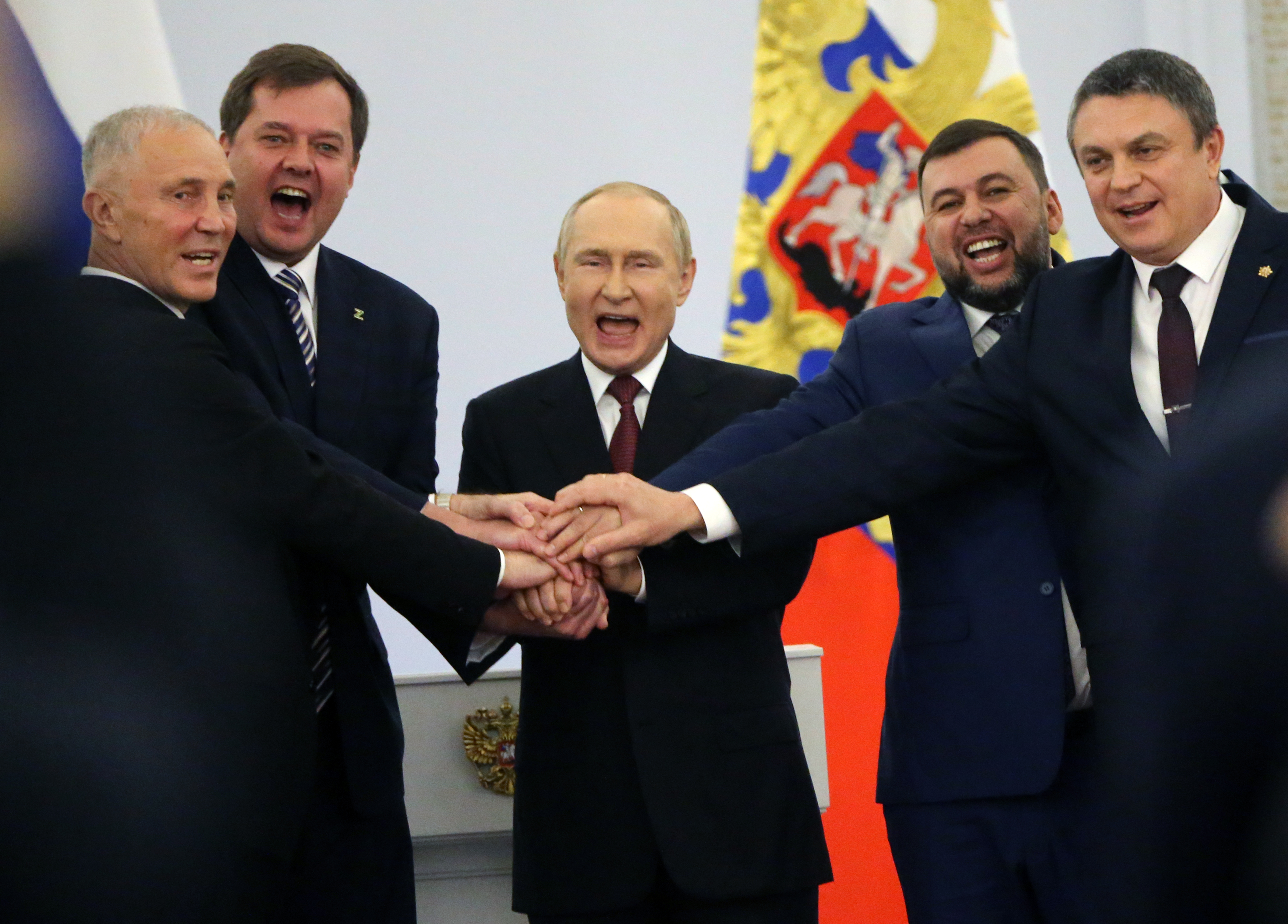We woke up this morning to two very different yet deeply related pieces of news. In the Baltics, President Vladimir Putin announced that Russia would annex four regions of Ukraine, signaling the continued intensity of the war there. And in Florida, hurricane Ian has inflicted catastrophic damage, unprecedented even for that perennially hurricane-prone state.
In different ways both events highlight the need to reshape the fundamental infrastructure of human society into something more robust, transnational, individualized and fluid. That includes the need for financial networks that can’t be cut off by autocratic leaders or destroyed by natural disasters.
These points were perhaps less obvious when the Bitcoin project was launched in 2009. Russia was still plausibly on a path to Western-style liberalization, and more generally there was a sense that democratic politics and market economies would become the universal standard. And while events like 2005’s Hurricane Katrina had already provided plenty of warning about the impacts of climate change, many were still in denial. Americans in particular still thought they were living in the capitalist utopia of Francis Fukuyama’s “End of History,” or its far more simpleminded cousin, Thomas Friedman’s “Flat” world.
Of course, Friedman wasn’t entirely wrong. The world has “flattened” in the sense that we can now communicate across long distances far more effectively than was possible even two decades ago. But in many cases that only offers a better view of unfolding tragedies.
Globalized communication, for instance, has allowed us to see far more clearly the disconnect between Russia’s kleptocratic leadership and its people, who are as divided and diverse as any other population on Earth. Vast numbers of Russians loathe Putin and everything he stands for, but nonetheless find themselves at risk of being disappeared from the international community by forces effectively beyond their control.
Regardless of the outcome of Putin’s aggression, individuals running businesses in Russia are likely to have far less access, above all, to international logistics systems including payments, shipping and transportation. These systems have become vastly more open in the past half-century, but there are still choke points at the nation-state level. SWIFT, the network that connects banks across borders, has kicked out at least seven Russian banks, for instance.
The rising rate of massive natural disasters, fueled by climate change, has similar disruptive effects. Things are bad in Florida, but they’re even worse in Pakistan, where flooding this month has caused 1,500 deaths. In any area vulnerable to these changes, even the most basic infrastructure could simply be wiped away in one fell swoop. Climate change is also expected to exacerbate political divisions as waves of refugees leave those vulnerable places.
Political and ecological instability are two aspects of an increasingly recognized process of “deglobalization.” If the 20th century was marked by economic integration and a greater awareness of our common humanity, the 21stt seems poised to reinscribe differences and borders, even as we all stare across those gaps at each other’s TikTok posts. Basic economics tells us that this fragmentation will make us all poorer, even if we’re not directly impacted.
It would be Thomas Friedman-caliber hubris to argue that blockchain and cryptocurrency networks are the answer to these rising systemic crises. They can certainly provide a way for individuals to transact despite things like the SWIFT cutoff, and a form of financial record keeping that can’t be upended by a tornado hitting the building where your bank balance is saved. But they also face an array of basic limits, such as the vulnerability of internet access itself in destabilized areas.
But blockchain and crypto do at least provide an innovative and even inspiring model for how systems can transcend and resist the forces of deglobalization, a technical means to provide services across borders without reliance on fragile political trust. Truly censorship resistant and decentralized systems can’t be politically attacked through single choke points. Despite their serious limitations in the present day, we already see the appeal of those tools in places as diverse as Iran, Kenya and Argentina.
The rise of a common global financial infrastructure will continue as the international landscape becomes even more fragmented, simply because it will become more necessary. The successive waves of speculative crypto hype over the past decade have provided plenty of cover for bad actors and incompetent rubes to misdirect that narrative towards mere self-enrichment. But days like today are a reminder of just how vital it is to get it right.
 Joy
Joy







